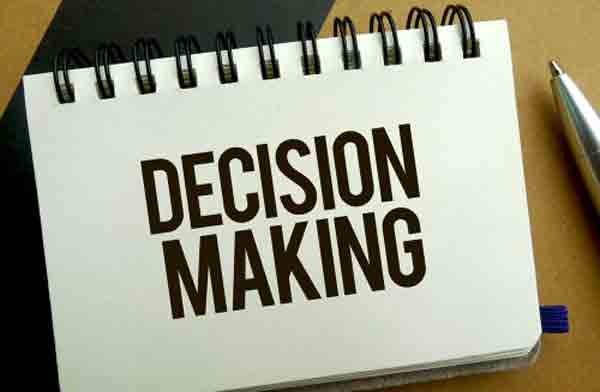Whether you are a businessman or an individual, you need to have a good decision-making skill. Keeping your mind logical and rational will make your decisions easier to make. There are several ways to improve your decision-making skills. You can get a personal opinion, analyze the pros and cons of your decision, and keep the situation in perspective.
Analysis of the pros, cons, positives, and negatives
Whether you’re trying to decide between two options, or you’re just looking for a way to improve your decision-making process, analyzing the pros and cons, positives and negatives of a decision can help you make a better choice. The pros and cons of a decision can include financials, social status, working hours, or any other considerations that may influence your decision.

Some people prefer to create a pros and cons list before making a major decision. This allows them to become more detached from the decisions they are making, and helps them to avoid making emotional or unconscious choices. This method also increases objectivity, which helps to ensure that your decision is made in an unbiased manner, Check out this site.
Another technique to analyze the pros and cons of a decision is to use the Lewin model. It is developed by psychologist Kurt Lewin and is commonly shown as a simplified diagram. In this model, horizontal arrows are placed alongside each factor.
Getting a personal opinion
Getting a personal opinion can be daunting and rewarding. While the big daddy is the requisite telephonic conversation, a well crafted text message can bring about the best in a pinch. Alternatively, a formal meeting or a shindig a la mode can go a long way to ensuring the aforementioned best-in-class is accomplished. If a formal meeting isn’t in the cards, a impromptu meet-up with colleagues or friends can be as much fun as a night at the local club.
While you’re at it, it’s a good idea to consider what your mates and colleagues are telling you. A little friendly competition can go a long way towards spicing up your decision making process. A good rule of thumb is to get everyone to share their opinions and preferences, and to keep your ego in check.
Identifying the purpose of your decision
Identifying the purpose of your decision is one of the most important steps in the process of decision making. By properly identifying the purpose of your decision you will be on your way to better decisions. Getting a good handle on the nitty gritty of your decision making process will help you to make the right choice, in the right order, at the right time. After all, it is a waste of time to make the wrong decision. This is especially true if you’re making decisions for a living. Using a decision making tool that enables you to effectively make the correct choices will ensure you get the most out of your hard earned money. This will also enable you to make the right choices in the first place.
Emotion trumps logic
Several studies have shown that emotions can have a different impact on the decision making process than rationality. The study in this article investigates whether increased emotional experience prior to viewing news headlines is associated with increased beliefs in fake and real news.
The study also measured participants’ propensity to engage in deliberative thinking through the Cognitive Reflection Test. Results showed a negative correlation between CRT performance and the perceived accuracy of fake news.
The authors suggest that emotion is a major contributor to decision making. For example, in social situations, people are often reliant on intuition to make decisions. Similarly, people with resentment are less likely to consider other’s perspectives. In fact, this may be a primary factor in why men are more emotionally suited for politics than women.
Keeping things in perspective
Keeping things in perspective can be a challenge. This is especially true when it comes to business decisions. The best way to do this is to keep your priorities in order. There are many ways to do this, but perhaps one of the most effective is to use a spreadsheet to help you keep track of the items you need to prioritize.
Conclusion:
You can also consider using a task manager or scheduling software to ensure you only get the tasks you actually need to do. When all is said and done, you can then spend your valuable time on the more rewarding duties. Taking a more active role in your own wellbeing will go a long way in ensuring you achieve your goals on time. https://www.youtube.com/embed/a9dxuL3rTIc

